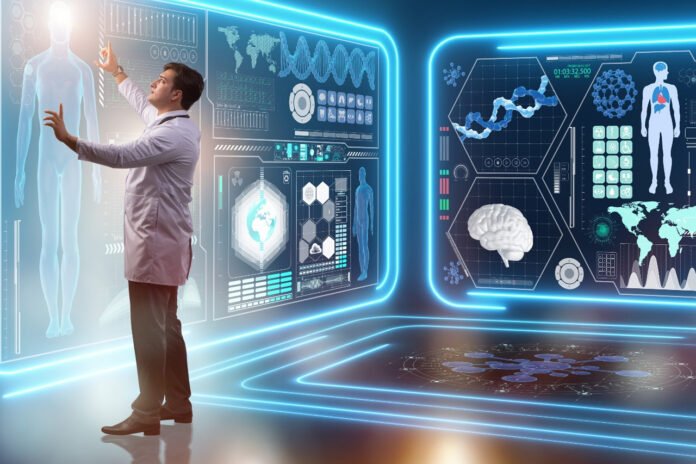The Role of Artificial Intelligence in Healthcare
Artificial intelligence (AI) has emerged as a transformative technology across various industries, and healthcare is no exception. With its ability to analyze vast amounts of data and identify patterns, AI has the potential to revolutionize the way we diagnose and treat diseases. In this blog post, we’ll explore the ways in which AI is changing diagnosis and treatment in healthcare.
Enhanced Diagnosis Accuracy
One of the main benefits of AI in healthcare is its ability to increase the accuracy of diagnosis. Traditional diagnostic methods often rely on human interpretation of symptoms and clinical tests, which can be subjective and prone to errors. On the other hand, AI can analyze large data sets and identify subtle patterns that might not be apparent to human doctors.
For example, AI algorithms can analyze medical images such as X-rays, CT scans and MRIs to detect early signs of diseases such as cancer. By comparing images to a vast database of previous cases, AI can identify patterns that indicate the presence of disease, even before symptoms become apparent. This early detection can significantly improve patient outcomes by enabling early intervention and treatment.
Personalized Treatment Plans
Another area where AI is making a significant impact is the development of personalized treatment plans. Traditional treatment methods often follow a one-size-fits-all model, where patients receive the same treatment regardless of their individual characteristics. This approach can be ineffective and lead to unnecessary side effects.
AI can analyze a patient’s medical history, genetic information, and other relevant data to develop personalized treatment plans. By taking into account individual factors such as genetic predispositions, lifestyle choices, and response to previous treatments, AI can recommend the most effective and appropriate treatment options for each patient. This personalized approach can improve treatment outcomes and reduce the risk of adverse reactions.
Streamlined Administrative Processes
In addition to diagnosis and treatment, AI is also changing the management process in healthcare. Tasks such as patient scheduling, billing, and record keeping can be time-consuming and error-prone. AI-powered systems can automate these processes, freeing healthcare professionals to focus on patient care.
For example, AI chatbots can field patient inquiries, schedule appointments, and provide basic medical advice. It not only improves the patient experience by providing round-the-clock support, but also reduces the workload of healthcare staff. AI can streamline the billing process by automating coding and documentation, reducing errors and improving efficiency.
The Future of AI in Healthcare
Although AI has already made significant advances in healthcare, its full potential has yet to be realized. Researchers and developers are constantly finding new ways to harness the power of AI to improve patient care.
One area of ongoing research is the use of AI in drug discovery and development. AI algorithms can analyze vast amounts of data to identify potential drug candidates and predict their efficacy. This can significantly speed up the drug development process and lead to the discovery of new treatments for various diseases.
Another exciting area of development is the use of AI-powered robots in surgery. Robots equipped with AI algorithms can help surgeons perform complex procedures with greater accuracy and precision. This can reduce the risk of complications and improve patient outcomes.
Finally, AI is transforming the healthcare industry by increasing the accuracy of diagnosis, creating personalized treatment plans, and streamlining administrative processes. As technology advances, we can expect AI to play an even more important role in improving patient care and outcomes. By harnessing the power of AI, we can revolutionize the way diseases are diagnosed and treated, ultimately leading to a healthier and more efficient healthcare system.

